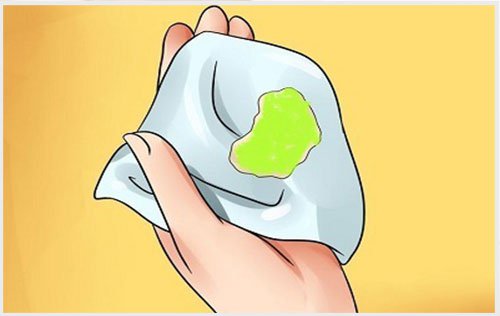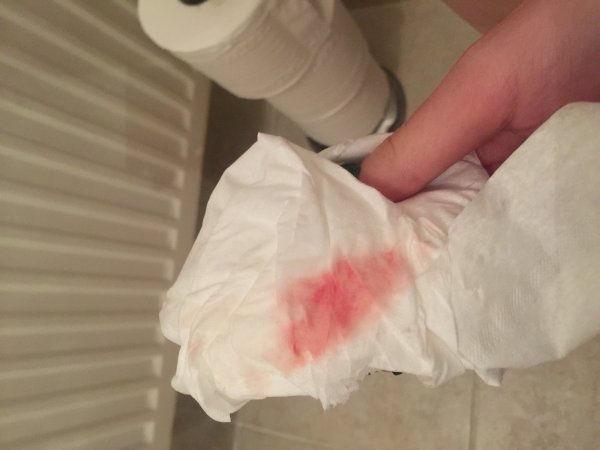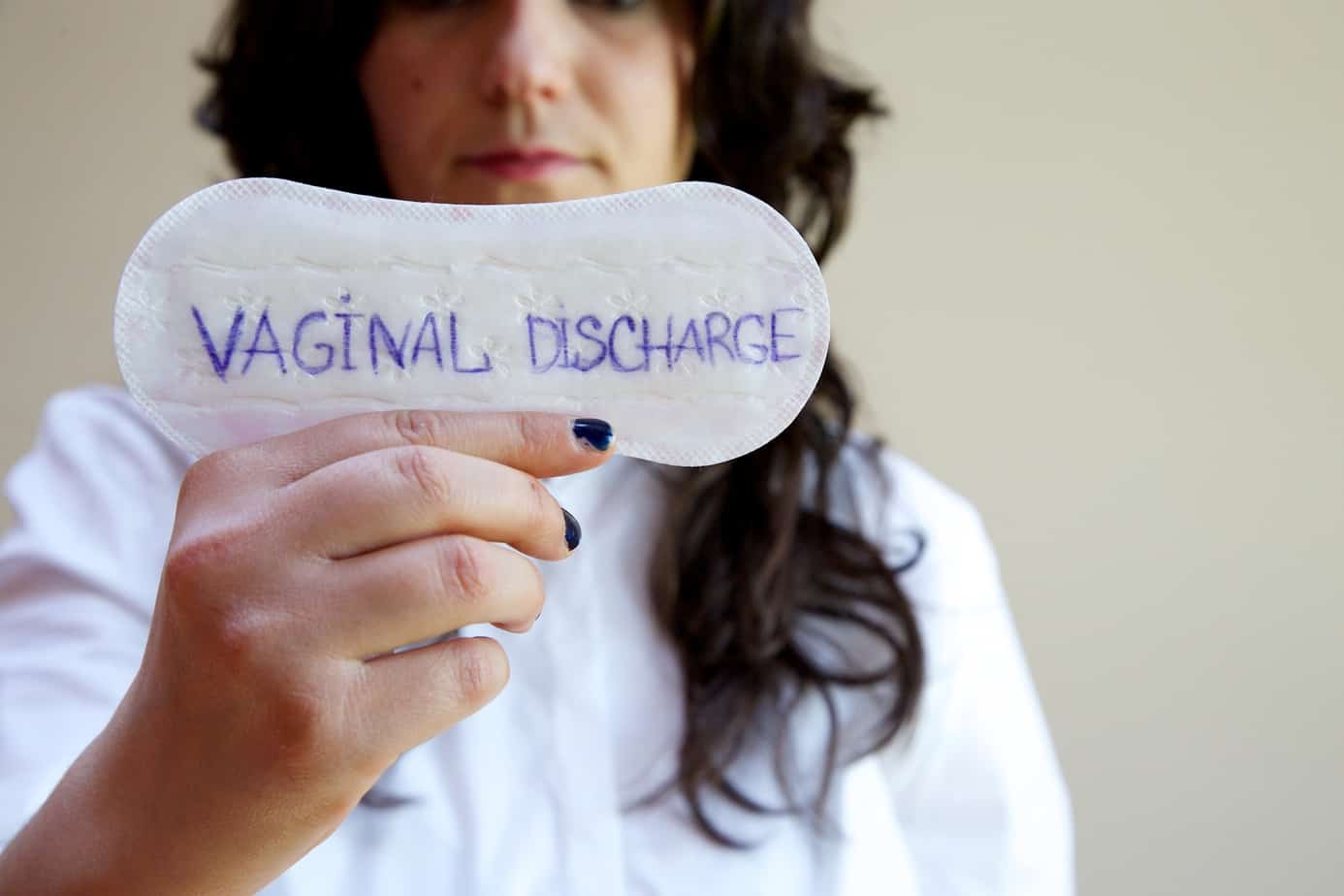When it comes to sexual intimacy, it’s essential to understand that women may experience vaginal discharge. Studies show that this occurs in 10 to 54% of women. If you’ve ever wondered about this phenomenon, you’re not alone. This article will delve into women’s discharge after sex, exploring its normalcy and shedding light on what factors may contribute to this natural bodily response. Delve into the fascinating world of women’s health and sexuality and learn what science says about this occurrence.
- What Is Discharge From Your Vagina?
- What Happens After Sex to a Woman’s Vagina?
- Post-Sex Discharge: Normal or Cause for Concern?
- Types of Vaginal Discharge after Sex
- Factors Affecting Discharge After Sex
- Recognizing Normal Discharge After Sex
- When to Seek Medical Attention
- Tips for Promoting Vaginal Health and Minimizing Discomfort
- Frequently Asked Questions
What Is Discharge From Your Vagina?
Discharge from the vagina is a normal occurrence for women, and a variety of factors can influence its presence. This fluid is produced by the glands in the cervix and vagina, helping to keep the reproductive organs healthy and clean.
The discharge’s consistency, color, and odor can vary depending on hormonal changes throughout the menstrual cycle, sexual arousal, pregnancy, certain medications, and even emotional or physical stress. While some changes in discharge may warrant attention, understanding the diverse causes can help differentiate between normal variations and potential indicators of underlying health issues.
What Happens After Sex to a Woman’s Vagina?
After sexual activity, a woman’s vagina undergoes several processes that can trigger discharge production. Firstly, sexual arousal causes increased blood flow to the vaginal area, releasing natural lubrication. This lubrication, known as vaginal discharge, helps reduce friction and facilitates comfortable penetration.
Additionally, sexual stimulation prompts the cervix to produce mucus, which can mix with vaginal fluids and contribute to the overall discharge. These physiological responses, combined with the contraction and relaxation of pelvic floor muscles during orgasm, create an environment that may increase vaginal secretions. It’s important to note that the amount and consistency of discharge can vary from woman to woman and even from one sexual encounter to another.
Post-Sex Discharge: Normal or Cause for Concern?
Post-sex discharge can be expected for many women, but it’s essential to distinguish between what is considered normal and what may require further attention. Some women may experience light spotting or bleeding after orgasm, which can be attributed to increased blood flow and potential minor abrasions during intercourse. However, if the bleeding is heavy, persistent, or accompanied by severe pain, it’s advisable to consult a healthcare professional.
Similarly, fleshy tissue discharge, especially if accompanied by an unpleasant odor or other symptoms such as itching or pain, may indicate an underlying issue and should be evaluated by a medical provider. It’s always better to err on the side of caution and seek medical advice if you have concerns about any unusual or persistent discharge after sex.
Types of Vaginal Discharge after Sex
After sex, it’s not uncommon for women to experience different types of vaginal discharge. Here are some common types:
Yellow Discharge After Sex
Yellow discharge can be normal, especially if it is pale and odorless. However, if the discharge is accompanied by a foul odor, itching, or pain, it could indicate an infection and requires medical attention.
White Discharge After Sex
White discharge is often normal and may vary in consistency throughout the menstrual cycle. It should be odorless and not cause any discomfort. But if the discharge becomes thick and clumpy (resembling cottage cheese) or is accompanied by itching or irritation, it could be a sign of a yeast infection.
Watery Discharge After Sex
Watery discharge is generally normal and can increase during sexual activity due to increased vaginal secretions. It is typically clear or slightly cloudy and should not have a strong odor. The discharge may indicate infection if it is foul-smelling or accompanied by other symptoms.
Jelly-Like Discharge After Sex
Jelly-like or gelatinous discharge is usually a result of increased cervical mucus production. This type of discharge is commonly observed around ovulation and can occur after sex. It is typically clear or slightly white and should not cause concern unless accompanied by other abnormal symptoms.
Pink Discharge After Sex
Pink discharge after sex can occur due to light spotting or small amounts of blood mixing with vaginal fluids. It can happen due to vaginal dryness, friction, or minor abrasions during intercourse. In most cases, it is harmless and resolves on its own. However, if the pink discharge persists, is heavy, or is accompanied by pain or other concerning symptoms, it is advisable to seek medical evaluation.
Factors Affecting Discharge After Sex
Several factors can influence the amount and characteristics of discharge after sex. Below are three significant factors to consider:
Sexual Lubrication

Having enough sexual lubrication is important to ensure a comfortable and enjoyable sexual experience. Insufficient lubrication can lead to increased friction during intercourse, which may result in irritation and potential abrasions. Insufficient lubrication can contribute to post-sex discharge, especially if the body tries to compensate by producing more vaginal fluids.
Hormonal Influences
Hormonal changes throughout the menstrual cycle can affect the amount and consistency of vaginal discharge. For example, estrogen levels rise during ovulation, leading to increased cervical mucus production and a potentially more significant amount of discharge. Additionally, hormonal contraceptives or hormonal imbalances can impact vaginal secretions.
Infections and STIs
Infections and sexually transmitted infections (STIs) can cause changes in vaginal discharge. Conditions such as bacterial vaginosis, yeast infections, and certain STIs can lead to abnormal discharge, including color, odor, or consistency changes.
Suppose you notice any unusual discharge after sex, particularly if itching, pain, a strong odor, or other accompanying symptoms. In that case, it’s essential to consult a healthcare professional for diagnosis and appropriate treatment.
Recognizing Normal Discharge After Sex
Recognizing normal discharge after sex is essential for understanding your body’s natural responses. By knowing how to differentiate between normal variations and potential indicators of infection, you can make informed decisions about your sexual health.
Characteristics of Normal Discharge
There are several characteristics of normal discharge after sex. These include the following:
- Color and Consistency: Normal discharge can range from clear to slightly white or off-white. It should have a smooth, creamy, or slightly sticky texture. The consistency may vary throughout the menstrual cycle, influenced by hormonal changes.
- Odor: Normal discharge typically has a mild or no odor. It should not have a strong, foul, or unpleasant smell. However, it’s important to note that every person has a unique scent, and changes in odor might be normal as long as they are not accompanied by other concerning symptoms.
- Quantity: Normal discharge can vary in quantity from person to person. It can increase during sexual arousal and sexual activity due to increased vaginal secretions. However, excessive or sudden changes in discharge volume may warrant medical attention.
Monitoring and Understanding Your Body
Monitoring and understanding your body is crucial in recognizing what is normal for you. Pay attention to any changes in your discharge patterns, such as sudden increases, changes in color, persistent itching, or unusual discomfort. Keep track of these changes and discuss them with your healthcare provider if you have concerns.
Remember, everyone’s body is unique, and what is considered normal can vary. If you have any doubts or experience persistent or abnormal discharge after sex, consulting a healthcare professional can provide valuable guidance and reassurance.
When to Seek Medical Attention
Knowing when to seek medical attention is crucial if you experience abnormal discharge after sex. Here are some signs that may indicate a need for medical evaluation:
Signs of Abnormal Discharge After Sex

- Changes in Color or Odor: If your discharge has a strong, foul, or unpleasant odor, or if there are significant changes in color (e.g., green, gray, or yellow), it may indicate an infection or other underlying issue.
- Persistent Itching or Irritation: If you experience persistent itching, redness, or irritation along with abnormal discharge, it could be a sign of an infection or allergic reaction.
- Unusual Consistency or Texture: If your discharge becomes unusually thick, clumpy (resembling cottage cheese), or has an unusual texture like frothiness or contains lumps, it may be indicative of an infection or other condition.
- Discomfort or Pain: If you experience pain, discomfort, or a burning sensation along with abnormal discharge after sex, it could be a sign of an underlying issue that requires medical attention.
Medical Evaluation and Treatment Options
If you notice any of these signs or have concerns about your discharge after sex, it’s advisable to seek medical evaluation. A healthcare professional can perform a thorough examination, diagnose any underlying conditions, and recommend appropriate treatment options such as medication, lifestyle changes, or other interventions to address the issue.
Tips for Promoting Vaginal Health and Minimizing Discomfort
Promoting vaginal health and minimizing discomfort can contribute to overall well-being. Here are some tips to help maintain vaginal health:
- Practice Good Hygiene: Wash the external genital area with mild, unscented soap and warm water. Avoid using harsh cleansers or douches, as they can disrupt the natural balance of the vagina.
- Use Protection During Sexual Activity: To reduce the risk of sexually transmitted infections (STIs) and maintain vaginal health, it is important to use condoms or other barrier methods consistently.
- Stay Hydrated: Drinking an adequate amount of water can promote overall vaginal health by maintaining hydration and supporting natural lubrication.
- Choose Breathable Underwear and Clothing: Opt for underwear and clothing made of breathable fabrics like cotton. This allows air circulation and helps prevent excessive moisture buildup, reducing the risk of infections.
- Avoid Irritants: Be cautious of using products that may irritate the vagina, such as scented tampons, perfumed soaps, lotions, or harsh detergents. These can disrupt the natural balance and cause discomfort.
- Practice Safe and Gentle Sex: Engage in sexual activities that are consensual, safe, and comfortable. Use sufficient lubrication, especially if experiencing vaginal dryness, to reduce friction and minimize discomfort during intercourse.
- Maintain a Healthy Lifestyle: A well-balanced diet, regular exercise, adequate sleep, and managing stress levels can contribute to overall vaginal health.
- Regular Check-ups: Schedule routine gynecological examinations to monitor your vaginal health, screen for infections or abnormalities, and address any concerns or discomfort.
Frequently Asked Questions
Why is my discharge brown after sex?
Brown discharge after sex can be due to slight bleeding from the cervix or vaginal irritation. It is often harmless, but if persistent or accompanied by other symptoms, consult a healthcare professional.
Is discharge after sex normal?
Yes, it is normal for women to have discharge after sex. It helps lubricate and cleanse the vagina, but if there are any concerns or changes, it’s best to consult a healthcare professional.
Why do I have so much discharge after sex?
Increased discharge after sex is common due to heightened sexual arousal and increased vaginal secretions. It helps with lubrication and maintaining vaginal health.
What is considered a healthy discharge after sex?
Healthy discharge after sex is typically clear or slightly white, odorless, and without any itching or discomfort. It may vary in consistency and quantity.
Why do I have pink discharge after sex?

Pink discharge after sex can be due to light spotting or small amounts of blood mixing with vaginal fluids. It is usually harmless and can result from vaginal dryness, friction, or minor abrasions.
Experiencing discharge after sex is a normal occurrence for many women. The characteristics of normal discharge can vary but generally include being clear or slightly white, odorless, and without discomfort. However, it’s important to be aware of any changes in color, odor, consistency, or accompanying symptoms that may indicate an underlying issue. Monitoring your body and seeking medical attention when necessary can help ensure optimal vaginal health and overall well-being. Remember, open communication with healthcare professionals is key in addressing any concerns and maintaining a healthy sexual experience.




